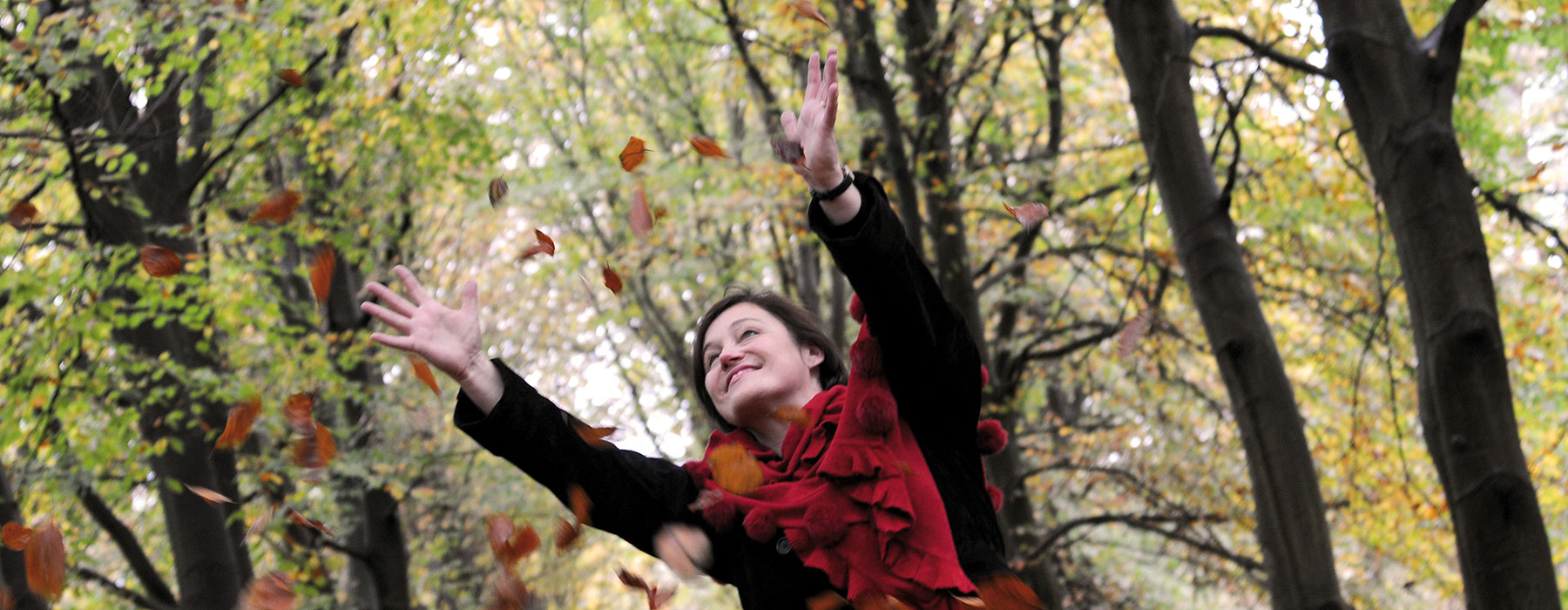NAME: DZIDRA DUBOIS
COMPANY: ORANZA
IN THE NETHERLANDS SINCE: 2006
In The Netherlands you can sleep peacefully as an entrepreneur, says Dzidra Dubois. In her native Latvia it’s different. There you can wake up one morning to the unpleasant discovery that a law has suddenly changed – whereby you, as an entrepreneur, could be in a lot of trouble. As a result, Latvian entrepreneurs are not only flexible but also very independent. If you can’t solve a problem yourself you ask someone in your surroundings for help. Engaging a coach, as we do in The Netherlands, is not an option there. Dzidra is astonished at the proliferation of coaches here. According to her you can only be a good coach if you have considerable life experience. As an example she mentions Annemarie van Gaal, who has gained much experience as an entrepreneur in Russia. She likes the Dutch feeling for colour, it appeals to her as a designer.
1. How long have you been in The Netherlands?
Since 2006.
2. How did you become an entrepreneur and why?
After studying architecture I started working in Latvia for media companies – as a graphic designer in media, advertising and marketing. Later I added web design and web development. Seven years ago I met my current Dutch man and decided, after much travelling back and forth, to live in Maastricht. For the first few years I was employed, but then, with my Dutch steadily improving, I started my own business. I had always dreamed of having my own business, and the freedom that goes with that, but in Latvia running a business is very tricky. Here in The Netherlands, with thanks also to the tremendous support of my husband, I can make my dream ‘Oranza’ a reality.
3. Did you encounter problems when you wanted to become an entrepreneur?
The Netherlands is very business-oriented and starting a business, on paper, is fairly straightforward. But building up a network for a new business requires a lot of energy and time. I am still visiting networking events, but largely meeting other, one-man business owners, all fishing in the same pond.
4. What are the differences between doing business in The Netherlands and in Latvia?
It’s easier to establish contacts in Latvia. In The Netherlands this is really a challenge: it’s particularly difficult for a foreigner here. In Latvia your network grows spontaneously – here I find the process very artificial. I also find the ‘silo mentality’ very difficult; it often makes me feel limited as a designer. People here find breadth and versatility confusing; on the one hand you are advised to differentiate yourself, but if you are too different they say ‘just be normal, that’s crazy enough’. In Latvia I was used to broad and deep communication, while here the subject matter of meetings and discussions is often itemised and linear. People keep things superficial, give a short briefing and everyone then carries out their own task. I find this difficult to get used to. The Dutch are not very open, so they’re not too keen to reveal their shortcomings when it comes to doing business. I think that’s bad, because being open is so much more human and you can help each other more in this way. In The Netherlands a commitment is a commitment. You know where you stand, and this prevents a lot of annoyance and saves time. The Dutch maintain a businesslike distance from the customer, are pragmatic and less emotional. There is almost no corruption, you can work ‘honestly’. And then they always say that the Dutch are so direct. Believe me, ‘Dutch directness’ is far less confrontational than the Latvian variety. Here you say: ‘Yes but…’. In Latvia it’s: ‘No, because…’.
5. What is typically Dutch when it comes to doing business and being an entrepreneur?
Thinking in terms of solutions, not problems. In The Netherlands a lot of time is spent in meetings and making agreements – and then following a very structured path. This feels ‘over-organised’ to me and limits spontaneity and emotion, which should also be present. In Latvia you can simply pitch up at a company’s offices, here you must make an appointment and then endure a long wait. But the Dutch are indeed innovative, can present themselves well – and they can sell well. And, though there are a lot of meetings, they can act quickly if they have to.
6. What have you taken from both the Latvian and Dutch cultures?
From Latvian culture: hard work, perseverance, flexibility and hospitality. From the Dutch: clearly-defined commitments, working in a goal-oriented way, thinking in terms of solutions, being optimistic.
7. Would you ever go back to Latvia?
I don’t exclude the possibility, because Latvia is very dear to me. It’s less busy there, you can eat better and there’s more unspoilt nature. But every country has its advantages and disadvantages.
8. What are the secrets of your success?
I am still (and always) striving for success: See things differently and don’t be compartmentalised in your thinking.
9. What is your favourite fruit, and why?
Oranges, the ‘orange apple’ as the Dutch say. My company is called ‘Oranza’, which in Latvian means Orange.
10. What is your favourite Dutch product and/or location?
I like Dutch cheese and my favourite city is Maastricht.
TIPS from Dzidra
1. Respect people and the businesslike way of working here, but stay true to yourself! This makes a big difference and is vital for your success.
2. Learn the language as soon as possible.
3. Make use of the benefits of Dutch characteristics and qualities.
4. Learn to present yourself well and try to think and react quickly.
5. Don’t think or doubt too much – take action!
